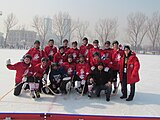
Bandy is a winter sport and ball sport played by two teams wearing ice skates on a large ice surface while using sticks to direct a ball into the opposing team's goal.
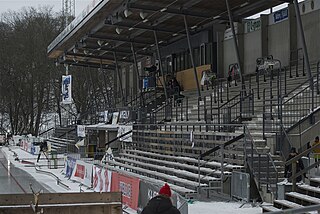
The Bandy World Championship is a competition for the men's teams of bandy-playing nations. The tournament is administrated by the Federation of International Bandy. It is distinct from the Bandy World Cup, a club competition, and from the Women's Bandy World Championship. A Youth Bandy World Championship also exists separately from the senior competition and has competitions in both the male and female categories.
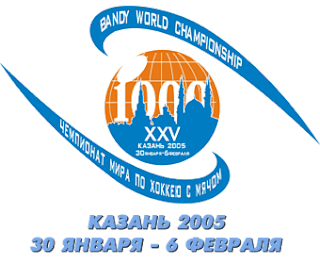
The 2005 Bandy World Championship was played by 11 men's national bandy teams in Russia on 30 January-6 February 2005. Sweden became champions.
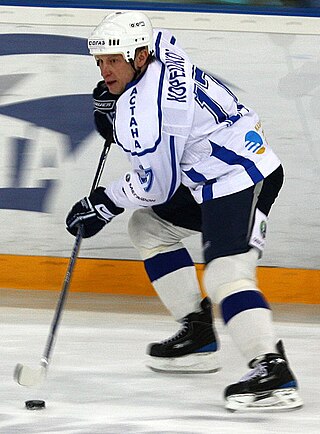
Kazakhstan's former long-term President, Nursultan Nazarbayev, has challenged sports organizers to engage 30 percent of the country's population in sports. The state has numerous sports clubs where people participate in various types of sports; sport facilities are available to the general public. Kazakhstan currently hosts major international tournaments; Astana and Almaty hosted the VII Asian Winter Games 2011, which drew teams from 27 countries.

The 2006 Bandy World Championship was held in Sweden 28 January-5 February. Men's national teams from 12 countries participated in the 2006 tournament: Belarus, Finland, Kazakhstan, Norway, Russia, Sweden and Canada, Estonia, Hungary, Mongolia, the Netherlands, the United States.

The 2004 Bandy World Championship was a competition among bandy playing nations. The men's tournament was played in Sweden on 1–8 February 2004 for Group A and Group B was played at the City Park Ice Rink in Hungary on 25–28 February 2004. Finland won the championship for the 1st time. Eleven bandy playing countries participated in the 2004 championships: Finland, Kazakhstan, Norway, Russia, Sweden and Belarus, Canada, Estonia, Hungary, Netherlands and United States.

The 2003 Bandy World Championship was a competition for bandy playing nations for men. The championship was played in Arkhangelsk, Russia from 24–30 March 2003. Sweden won the championship. There were 9 countries participating in the 2003 championships: Finland, Kazakhstan, Norway, Russia, Sweden and Belarus, Estonia, the Netherlands and the United States.
The 2006–07 season in Swedish bandy, starting August 2006 and ending July 2007:
The 1998 Men's Ice Hockey World Championships was the 62nd such event sanctioned by the International Ice Hockey Federation (IIHF). Teams representing 40 countries participated in several levels of competition. The competition also served as qualifications for group placements in the 1999 competition.

The 1993 Men's Ice Hockey World Championships was the 57th such event sanctioned by the International Ice Hockey Federation (IIHF). Teams representing 32 countries participated in several levels of competition, with an additional six national teams failing to advance from mid-season preliminary qualifying tournaments. The competition also served as qualifications for group placements in the 1994 competition.

The 1991 Men's Ice Hockey World Championships was the 55th such event sanctioned by the International Ice Hockey Federation (IIHF), and at the same time served as the 66th and last Ice Hockey European Championships. Teams representing 25 countries participated in several levels of competition. The competition also served as qualifications for group placements in the 1992 competition.

The 2010 IIHF World Championship was the 74th IIHF World Championship, an annual international ice hockey tournament. It took place between 7 and 23 May 2010 in Germany. The games were played in the Lanxess Arena in Cologne, SAP Arena in Mannheim, and one game at Veltins-Arena in Gelsenkirchen. The Russian team was the defending champion, having won the previous two championships.

The Bandy World Championship 2009 was held from 18 to 25 January in Västerås, Sweden. Men's teams from 13 countries participated in the 2009 competition: Belarus, Finland, Kazakhstan, Norway, Russia, Sweden and Canada, Estonia, Hungary, Latvia, Mongolia, the Netherlands and the United States. Belarus retained their place in group A by beating the United States in a play-off in the previous tournament held in 2008. 44 games were played. Four out of these were played on sites other than Västerås. Those games were played in Solna, Stockholm, Eskilstuna and Uppsala. The main venues were ABB Arena Syd in Västerås, Sweden's largest indoor arena for bandy, and Hakonplan, an outdoor stadium. These two arenas are in the same recreation area in Västerås, Rocklunda sports park.
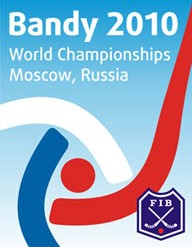
The Bandy World Championship 2010 was held between 24 and 31 January 2010, in Moscow, Russia. Men's teams from 11 countries participated in the 2010 competition: Finland, Kazakhstan, Norway, Russia, Sweden, the United States and Canada, Hungary, Latvia, Mongolia and the Netherlands.

The 2011 Bandy World Championship was an edition of the top annual event in international men's bandy, held between January 23 and January 30, 2011, in Kazan, Russia.

The 2013 Bandy World Championship was an edition of the top annual event in international bandy, held between January 23 and February 3, 2013, in Norway and Sweden.

The 2014 Bandy World Championship was held between 26 January and 2 February 2014, in Irkutsk and Shelekhov, Russia. 17 nations participated in the tournament, playing in two divisions partitioned into two subdivisions. A team representing Somalia took part, the first squad from Africa to play in the Bandy World Championship.

2015 Bandy World Championship 2015 was the XXXVth Bandy World Championship. At the FIB congress held during the XXXIVth World Championship in 2014, it was announced that Khabarovsk in Russia had been elected as host city. It was also decided the Group A tournament would be played around the end of March/beginning of April, which means it would take place when the national bandy leagues in the major bandy playing countries, Finland, Norway, Russia and Sweden, would be finished for the season. Group B was played between February 1 and 6 and hit a new record attendance, already before the match for the bronze and the final.

Bandy World Championship 2016, the XXXVI Bandy World Championship, was held with Ulyanovsk Oblast, Russia, as host region. Most of the games was played at the Volga-Sport-Arena in Ulyanovsk. Because of its higher spectator capacity, the group stage matches between Russia and Sweden and between Russia and Kazakhstan were played at Trud Stadium, which also hosted one semi-final and the final. Some games were played in nearby Dimitrovgrad at Stadium Stroitel.
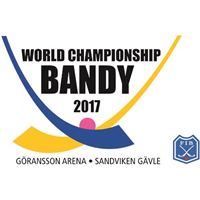
2017 Bandy World Championship was the 37th Bandy World Championship and was held in Sweden. The games in Division A were played in Göransson Arena in Sandviken, 29 January to 5 February. The games of Division B were played in Slättbergshallen in Trollhättan, 24–28 January. Also Gävle, where no match was played, was officially a host city. However, the FIB congress took place there.



